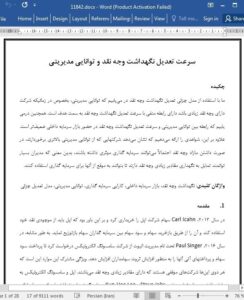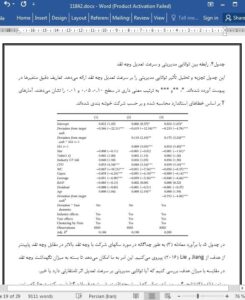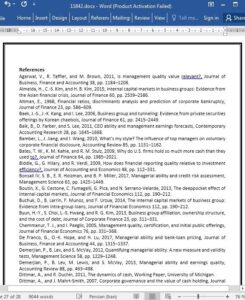Abstract
Using the partial adjustment model of cash holding, we find that managerial ability is negatively related to adjustment speed of cash holdings toward the target, particularly when the firm has excess cash. We also find that the relation between managerial ability and cash holding adjustment speed is weaker in the presence of the internal capital market. Additionally, we provide evidence that firms with higher managerial ability are less likely to make inefficient investments when they have excess cash, implying that high-ability managers are willing to hold a large amount of cash to make timely investments.
1. Introduction
In 2013, Carl Icahn purchased Apple Inc.’s stocks and argued that Apple should utilize its cash holdings by redistributing them to equity investors through dividends and stock repurchases. Similarly, in 2016, Paul Singer, under the name of Elliott Management, requested Samsung Electronics Co. to increase dividend payments and future payouts in order to increase shareholders’ wealth. A common feature in these cases is that they are both successful companies with large cash holdings. Apple and Samsung Electronics are widely known for their iconic managers, Steve Jobs and Kun-Hee Lee, respectively, and shareholders have benefited from these companies’ strong performance that is a result of their managers’ excellent investment and operating decisions. Thus, the managerial ability of these companies is a good reason to hold larger cash holdings than other less competent companies. While many prior studies have highlighted the importance of cash holding management for the survival and growth of modern corporations (Opler et al., 1999; Bates et al., 2009), they have failed to provide a comprehensive understanding of how managerial ability is associated with cash holding decisions, as shown in these cases.










